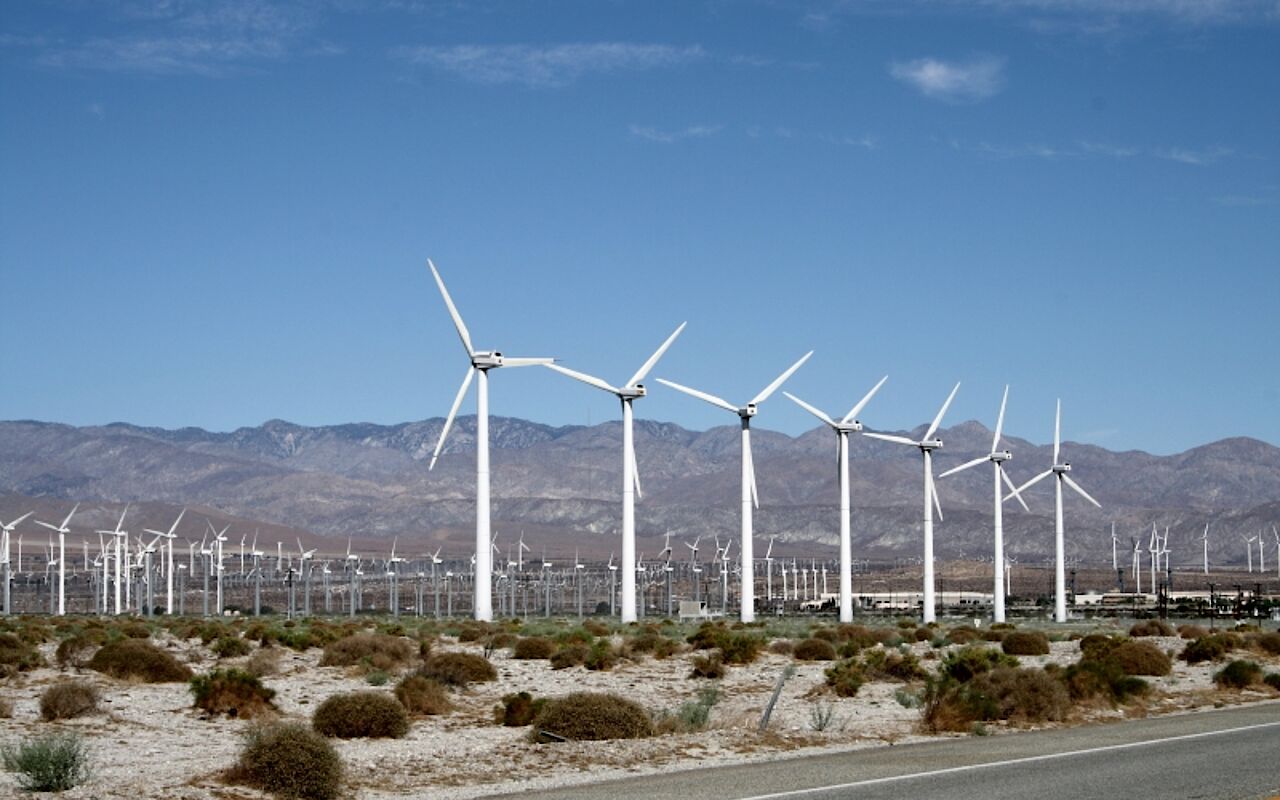The U.S. Climate Policy and the 2016 Presidential and Congressional Elections
The Atlantic Academy’s Road to the Elections No. 1
Ronja Ritthaler-Andree, Heidelberg University
About this Series
On November 8, nearly 200 Million registered voters are called upon to elect the next President of the United States of America, all 435 members of the House of Representatives as well as thirty-four of the one hundred senators. As in 2008, there is no incumbent, which is why both parties, the Democrats and the Republicans, will determine their candidates in primary elections. Thus, maybe fundamental changes but at least new accents in some policy fields should be expected.
With a monthly publication series, the Atlantic Academy will focus on this road to the elections in November. Political and economic scientists analyze policy fields as well as their roles in the (primary) elections and formulate expectations for a new presidency and Congress.
“This agreement represents the best chance we´ve had to save the one planet we´ve got” – with this header the Obama administration uploaded a video on the website of the White House to present the Global Climate Agreement from several weeks ago in Paris. The agreement is not only presented as a historic moment but also as an achievement of President Obama´s leadership. There has been a great engagement of the U.S. administration in building an alliance between different governments (e.g. France), private investors (e.g. Bill Gates, Mark Zuckerberg) and developing countries (e.g. India´s Prime Minister Modi) as well as important bilateral dialogues about climate policy in the last two years (e.g. with China in 2014). However, the United States of America are still not willing to commit to binding greenhouse gas emission targets even though they are the second largest emitter with 14.7% of worldwide emissions. Even though the Intended Nationally Determined Contributions (INDCs) to fight climate change were defined by the Obama administration as well as 159 other states in Paris and are a very first step forward in international climate change agreements, they are not legally binding. Thus, fulfilling the U.S.’s emission reduction of 26 to 28% in 2025 (in comparison to 2005 levels) referred to in the document (INDC USA 2016) is quite ambitious. Furthermore, international monitoring mechanisms were discussed for the first time, but no sanctions were put in place should states not keep their promises.
The international bargaining within the United Nation Framework on Climate Change Convention (UNFCCC) has not been as successful as one had wished for when Barack Obama took office. Especially in the international arena of climate change policy, the USA has not played the important role that Barack Obama promised before and after his election.
Although the government increased its annual financial aid of 7.5 billion dollars by about 300 million dollars within the international program Reducing Emissions from Deforestation and Forest-Degradation (Department of State 2012: 1/11) and agreed on 3 billion dollars for the Green Climate Fund in November 2014 (White House 2014a), the United States of America still refrains from joining an internationally binding agreement on climate change policy. Nevertheless, the current national developments within this policy field – such as the Clean Power Plan as well as the rejection of the Keystone XL Pipeline in November 2015 – show a positive trend. However, if one looks closely at last year´s political initiatives regarding climate change, you can see that Congress denied nearly all legislative proposals. The American Recovery and Reinvestment Act, passed in 2009, provided 95 out of 798 billion dollars for renewable energy, clean coal technology and energy efficiency (see Mildner/Richert 2010) and 80 billion for environmental research (see Rudolf 2010). This shows that climate change policy should have played an important role in the beginning of Obama´s first term. But the few bills that were actually passed, for example the Biggert-Waters Flood Insurance Reform Act 2012 and Disaster Relief Appropriations Act 2013, did not include mitigation or adaptation regulations, but only policy actions regarding energy security and flood compensation. Legislative proposals regarding renewable energies, such as the American Clean Energy and Security Act 2009 or American Clean Leadership Act 2009, were blocked immediately by Congress.
While President Obama did not take further initiatives during his first presidency – obviously in order to not increase frictions with Congress, which has been dominated by the Republicans since 2010 – he carried out climate reforms with the help of the Environment Protection Agency (EPA) in his second term since 2013. In 2014 and 2015 new guidelines were issued in regard to the existing Clear Air Act to reduce 138 tons of the annual emissions, 7% of the annual oil consumption and oil imports about 41.5 billion until 2022 (EPA 2015a). A national cab and trade program still does not exist. At least nine states in the Northeast founded The Regional Greenhouse Gas Initiative and reduced their CO2 emissions. The Clean Power Plan, that was proclaimed by the Obama administration on August 3, 2015, pursues mitigating emissions within the energy sector about 32% and reduction of air pollution about 20 % in comparison to 2005 (EPA 2015). So, for the first time, specific limits for harmful substances were established, that have to be adhered to in the different states. The plan´s disadvantage: It focuses only on the existing coal-fired and gas-fired power stations, not on other energy facilities. How the individual states keep these guidelines, however, is – following the idea of American federalism – not defined.
There are several reasons why Barack Obama could not reach his climate change policy targets as planned when he took office: First, since 2010 a high degree of political polarization exists in the U.S. In the midterm elections 2010, the Democrats lost 63 seats in the House of Representatives and consequently their majority to the Republicans (193 vs. 242 seats) (FEC 2010). In the Senate, they had 53 seats left (including two seats held by Independents), while the Republicans claimed 47 (FEC 2010). Moreover, the Democrats could only win one seat in the Senate and eight in the House of Representatives (FEC 2012) in the presidential election two years later, which has perpetuated the divided government. Second, every state has – regardless of its population – two members in the Senate. In fact, the states with the smallest population such as Ohio, Pennsylvania and West Virginia are those that are highly dependent on fossil fuels. Yet the ratification of international treaties requires the advice and consent of two thirds of the Senate. Apart from the ratification of international treaties, Congress is also in charge of the annual budget that also influences climate change policy. Immediately in the first year of Barack Obama´s presidency, Congress quit all the financial support for the climate and energy sector – Obama had no chance in agreeing on or signing a post Kyoto protocol that would also convince Congress. In addition, his first term was highly influenced by the great economic recession. Third, this crisis as well as the great economic dependency on the production and use of fossil fuels has influenced the people´s opinion on climate change measures. While in 2007 the majority of U.S. citizens demanded stronger efforts to fight climate change, the support for climate change policy vanished after 2008. In the past three years, most people have favored the investigation and extension of renewable energy, but have done so randomly in relation with mitigation and almost entirely in relation with ensuring energy supply (see Heyck/Ritthaler 2014).
The citizens´ awareness of the need for environmental protection in the United States is still influenced by the country´s economy (see Brühl 2012; Mildner/Richert 2012; Klüwer/Wernicke 2012). Only a small group of Americans denies that climate change really exists (Jale 2014). In 2014, about one third favored a „large-scale effort, even if it has large economic costs” (Leiserowitz et al. 2015: 80). That is a big challenge to the Republican candidates running in the current election campaign: They are not part of the mainstream. In comparison to the 54% of the Democratic members of the legislative body, only 15 % of the Republicans see climate change policy as a priority (see EESI 2015). In their official statement, the Democrats explicitly state that they “are committed to curbing the effects of climate change, protecting America’s natural resources, and ensuring the quality of our air, water, and land for future generations. (...) Democrats are working to address our biggest environmental challenges, paving the way to a more sustainable America” (Democrats 2015). Instead, the Republicans focus on „new leadership in the White House that seizes every opportunity to create jobs, unleash economic growth, and aggressively pursue an all-the-above energy strategy that moves us closer to energy independence“ (GOP 2015) and “oppose any and all cap and trade legislation“ (Brewer 2015: 284).
The Republican candidates Ted Cruz und Donald Trump follow that party line strictly. Ted Cruz doubts the correctness of the research results: “According to the satellite data, there has been no significant global warming for the past 18 years. Those are the data. The global warming alarmists don’t like these data - they are inconvenient to their narrative. But facts and evidence matter” (Cruz 2016). They even deny the anthropogenic responsibility of climate change: “l call it weather…You look back and they were calling it global cooling and global warming and global everything...Maybe there´s a little change, I don´t happen to believe it´s manmade” – Donald Trump, August 2015 (Right Wing Watch 2015). However, Carly Fiorina believes in scientific data on climate change but thinks that the current climate change policy has highly negative economic consequences: ”We have to read the all fine prints (…) the scientists tell us also, that one nation acting alone can make no difference at all (…) there are regulations, that destroy jobs and livelihoods” (YoungCons 2016). In comparison, Jeb Bush and Ben Carson cannot easily be classified as climate change deniers. They do not deny the anthropogenic climate change, but criticize political regulation to fight climate change: “The climate is changing; I don´t think anybody can argue it´s not. Human activity has contributed to it. I think we have a responsibility to adapt to what the possibilities are without destroying our economy, without hollowing out our industrial core” – Jeb Bush (BNA 2015). Although he supports research for new technologies, he warns of high energy prices at the same time: “However, to use climate change as an excuse not to develop our God-given resources makes little sense. Expanding our wealth of energy resources, as well as encouraging development of new renewable energy sources, can provide an enormous economic lift, but it can also bolster our role as a formidable player in the struggle for world leadership” (Washington Times 2014).
The Democrats agree that climate change is man-made and support a broad climate change policy. Hillary Clinton states: “Climate change is an urgent challenge that threatens all of us. The United States is already taking steps to invest in our clean energy future, but we need to do more. We need to take bold action to combat climate change, create jobs, protect the health of American families and communities, and make the United States the world’s clean energy superpower“ (Clinton 2015). Martin O´Malley focuses on the responsibility to future generations: “We have a moral obligation to act immediately and aggressively to stop climate change. The future of our country and our planet depend on it. (...) Clean energy represents the biggest business and job creation opportunity we’ve seen in a hundred years” (O´Malley 2016). Whereas Bernie Sanders wants to reduce the U.S. dependency on fossil fuels: “(…) we must transition away from fossil fuel consumption to prevent the worst impacts of climate change. But our transition away from fossil fuels must be fair to those currently working in the energy sector, which means those workers and their families must be able to depend on safe, living-wage jobs” (Sanders 2016).
What becomes clear is that the party affiliation of the 45th president of the United States of America will be as important as the majority situation in Congress. If a divided government remains in place, polarization will continue to have a great impact on the climate change policy as well as on other policy fields. There will be only a slim chance to ratify international climate treaties and it will take tremendous efforts to pass big national reforms. Especially in this context, the EPA is going to play an important role as a tool for the future president and his or her climate change program. But even if the next president is a Democrat, the fact, that climate change policy is highly influenced by the country´s economic dependency on fossil fuels and by the people´s priority on energy security, will decide the future climate change policy of the United States. The individual states, however, could make the difference, if more of them would establish climate change programs. The Paris agreement will not change the U.S. climate change policy fundamentally. But at least there is a chance, that the political regulations to fight climate change defined by the Obama administration in the INDCs will not be rejected by the following president (even if she or he is Republican) in order to not lose her/his credibility in international climate negotiations. Thus, the latest national climate change regulation could endure and pave the way for a future policy. But, as seen in the Bush administration, there is no guarantee.
Bibliography
Brewer, Thomas L. (2015): The United States in a Warming World. The Political Economy of Government, Business, and Public Responses to Climate Change, Cambridge.
Brühl, Tanja (2012): Cost-Benefit Analyses or Environmental Awareness? Die Klimapolitik, in: Jochen Hils, Jürgen Wilzewski, Reinhard Wolf (Hrsg.), Assertive Multilateralism and Preventive War, Baden-Baden, S. 344-374.
BNA (2015): Jeb Bush takes positions on Climate Change, http://www.bna.com/jeb-bush-takes-n17179934073/.
Clinton (2016): Making America the Clean Energy Superpower of the 21st century, https://www.hillaryclinton.com/issues/climate/.
Cruz (2016): The Dogma of Climate Change Alarmists, http://www.cruz.senate.gov/?p=press_release&id=2548.
Democrats (2015): Environment, https://www.democrats.org/issues/environment [11.1.2015].
Department of State (2012): Meeting the Fast Start Commitment. US Climate Finance in Fiscal Year 2012. Executive Summary, http://www.state.gov/e/oes/climate/faststart/c48618.htm.
EESI (2015): Fact Sheet Climate Change Polling, Environmental and Energy Study Institute, http://www.eesi.org/files/FactSheet_Climate_Change_Polling_040615.pdf.
EPA (2015): Clean Power Plan, Environmental Protection Agency, http://www2.epa.gov/cleanpowerplan/clean-power-plan-existing-power-plants.
EPA (2015a): Regulatory Initiatives, Environmental Protection Agency, http://www3.epa.gov/climatechange/EPAactivities/regulatory-initiatives.html.
FEC (2010): Election Results for the U.S. Senate and the U.S House of Representatives, Federal Election Comission, unter : http://www.fec.gov/pubrec/fe2010/tables2010.pdf.
FEC (2012): Election Results for the U.S. Senate and the U.S House of Representatives, Federal Election Comission, http://www.fec.gov/pubrec/fe2012/tables2012.pdf.
GOP (2015): Tell Hillary and Obama: Yes to Energy. Yes to Jobs, https://gop.com/keystone/?utm_campaign=ENG_keystone-pipeline
Heyck, Matthias/Ritthaler, Ronja (2014): Making Credible Commitments? Die USA, die Klimaschutzpolitik und die Zukunft amerikanischer Weltführungspolitik, in: Hagemann, Steffen/Tönnesmann, Wolfgang/Wilzewski, Jürgen (Hg.): Weltmacht vor neuen Herausforderungen. Die Außenpolitik in der Ära Obama. Trier: Wissenschaftlicher Verlag (Atlantische Texte, 39).
Intended Nationally Determined Contributions USA 2016: U.S Cover Note INDC and Accompanying Information, http://www4.unfccc.int/submissions/indc/Submission%20Pages/submissions.aspx.
Jale (2014): Not All Republicans Think Alike About Global Warming, http://environment.yale.edu/climate-communication/article/not-all-republicans-think-alike-about-global-warming/.
Leiserowitz et al (2015): Climate change in the American mind: March, 2015. Yale University and George Mason University. New Haven, CT: Yale Project on Climate Change Communication, http://environment.yale.edu/climate-communication/files/Global-Warming-CCAM-March-2015.pdf.
Mildner, Stormy-Annika/ Richert, Jörn (2010): Going Green? The New US Climate Policy under Barack Obama, in: Dröge, Susanne (Ed.): International Climate Policy. Priorities of Key Negotiationg Parties. SWP-RP2, March 2010, Berlin. 38-53.
Right Wing Watch (2015): Donald Trump denies Existence of Climate Change, http://www.rightwingwatch.org/content/donald-trump-denies-existence-climate-change-bad-weather.
Rudolf, Peter (2010): Obamas »Grand Strategy«, Berlin.
O´Malley (2016): New Climate Leadership, https://martinomalley.com/policy/clean-energy-future/.
Sanders (2016): Combating Climate Change to save the Planet. Accelerate a Just Transition away from Fossil Fuels, https://berniesanders.com/people-before-polluters/accelerate-a-just-transition-away-from-fossil-fuels/.
Statista 2014: Die zehn größten CO2-emittierenden* Länder nach Anteil an den weltweiten CO2-Emissionen im Jahr 2014, http://de.statista.com/statistik/daten/studie/179260/umfrage/die-zehn-groessten-c02-emittenten-weltweit/.
Washington Times (2014): Carson: Expanding our Energy Resources serves peace, March 25, 2014, http://www.washingtontimes.com/news/2014/mar/25/carson-energys-role-in-the-path-to-peace/.
White House (2014a): Fact Sheet on Green Climate Fund, https://www.whitehouse.gov/the-press-office/2014/11/15/fact-sheet-united-states-support-global-efforts-combat-carbon-pollution.
YoungCons (2016): Carly Fiorina about Climate Change, http://youngcons.com/carly-fiorina-is-asked-about-climate-change-by-katie-couric-delivers-epic-response/.
About the Author
Ronja Ritthaler-Andree studied Political Science und German Linguistics at Heidelberg University and Universidade de Santiago de Compostela (Spain)from 2006 to 2013. In her final thesis ("The development of the Spanish Migration policy. Causes and characteristics of the policy outcome from 1996 to 2011"), she analyzed the impact of Spain´s national preferences and bilateral agreements as well as the directives of the European Union on the Migration policy. Since Fall 2013 she is PhD and staff member at the Chair for Internationale Relations at Heidelberg University and does research and discourse analytical studies on Climate Change Policy and Climate Justice (especially USA, China, India) as well as Climate Engineering. Her superviser is Prof. Dr. Sebastian Harnisch. She is sponsored by the Scholarship Programme of the Deutsche Bundesstiftung Umwelt.
More information can be found here.







